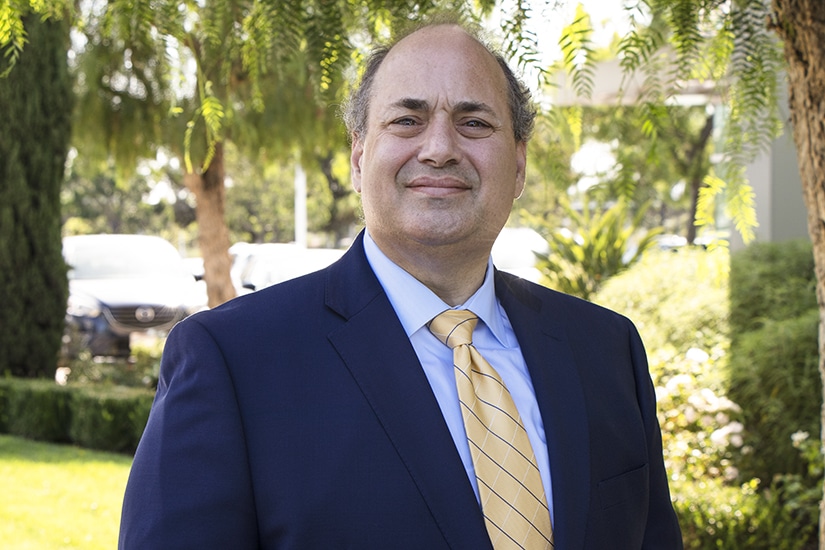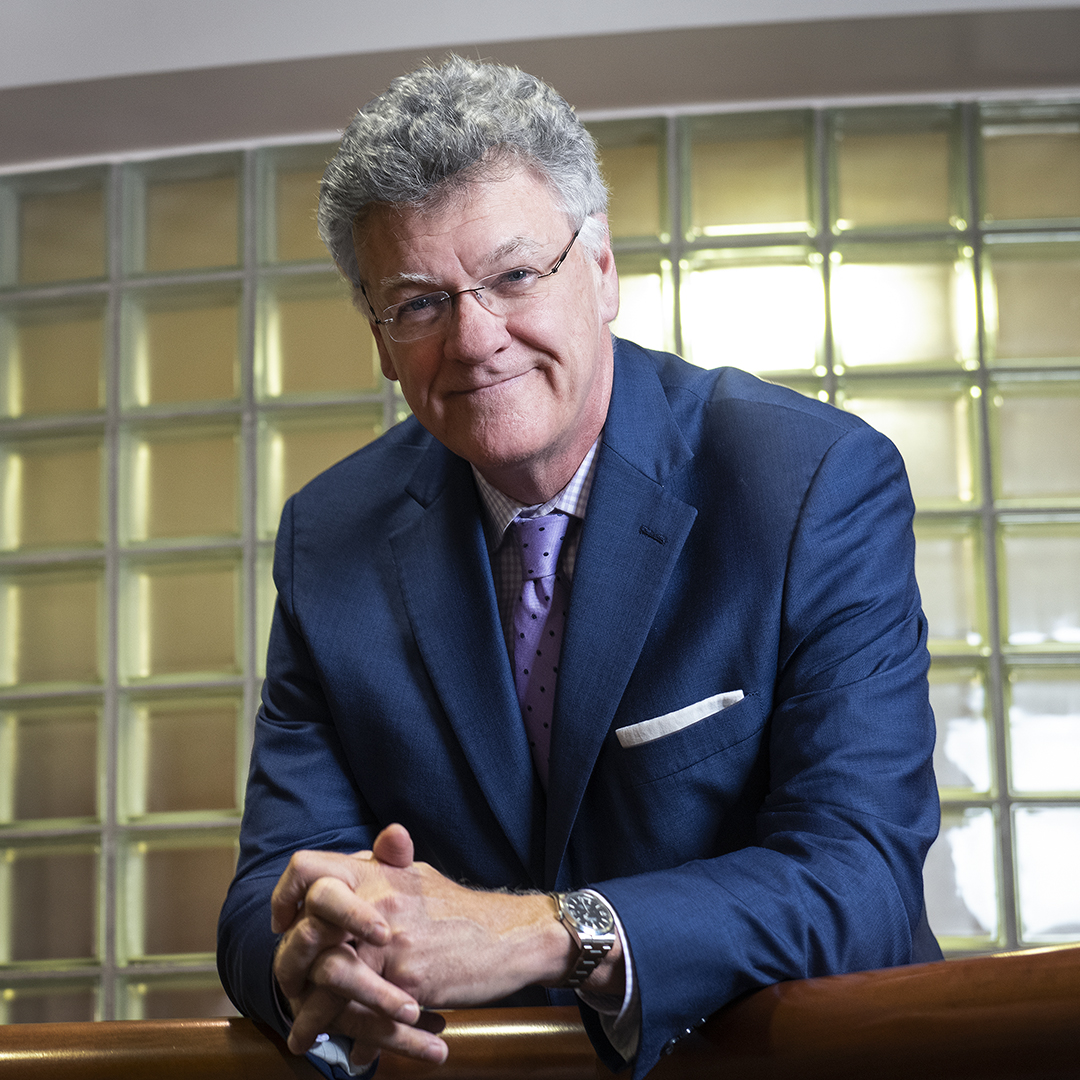Marc Goldstone has some unusual credits to his name. As senior vice president and general counsel at Prime Healthcare, he has helped advance the operational efficiency of nearly fifty different hospitals with forty thousand employees and physicians based in fourteen states. But Goldstone has also saved lives, delivered babies, and even pulled a drowning infant from a creek on an early Christmas morning. As a paramedic turned attorney, Goldstone has used his firsthand knowledge of the healthcare system to transform the legal department at Prime into a team that truly serves the needs of staff, clinicians, and patients alike.
After graduating from the Rutgers University School of Law in 1994, Goldstone took advantage of his medical background and the support he received from the American Health Lawyers Association community to secure a position as general counsel and chief legal officer of the Monmouth Ocean Hospital Service Corp.
After years of working for health systems like Monmouth and Community Health Systems, Goldstone was struck by the service model he saw at Prime, an award-winning health system with an affiliated nonprofit foundation that owns fifteen of the system’s forty-five hospitals.
“It’s rare that one individual, physician or not, can buy a hospital and make it successful, let alone buy one hospital and then build that into an award-winning, forty-five-hospital health system,” Goldstone remarks. “It indicated to me that Dr. Prem Reddy, Prime’s founder, president, and CEO, had a better understanding of what makes hospitals work and how you efficiently deliver high-quality healthcare in an increasingly fractured and unstable market.”

But however impressed Goldstone was with Prime from the start, he has continued to enhance its legal and clinical efficacy. As the leader of the legal department, Goldstone wanted to be able to recognize his team’s achievements and professional growth. When he first joined Prime, he noticed that there was an opportunity to clarify the legal organizational chart and develop a well-defined career ladder. “When I first visited with the team, some of the lawyers expressed a desire to understand where they fit into the structure of the department and the company, and what their long-term career prospects were,” offers Goldstone.
By creating a clear, formalized career ladder for the legal team, Goldstone has been better able to highlight the actual value that his team members bring to Prime. “I’m always looking for things I can do to satisfy our employees, especially our high achievers, without having to stretch already thin healthcare budgets,” the GC says.
Goldstone’s dedication does not go unnoticed by his team members and colleagues. “I’ve worked with Marc for years and have found him to be an extremely knowledgeable attorney who cares deeply about Prime’s mission and its efforts to meet the healthcare needs of the communities it serves,” says Wilson Jones, a partner at Thompson & Knight LLP.
“I don’t think anybody can expect every lawyer to know everything all the time . . . The lawyers here understand that they’re delivering exceptional value by becoming subject matter experts in addition to knowing their general field of law.”
Goldstone has actually gone a step further than commending his legal team for their abilities—he actively drives his team to continue expanding their skill sets through his establishment of a subject matter expert list. That list serves as an “inventory of the intellectual capital” of his team, Goldstone explains, and is designed to enhance the efficiency of both the legal department and Prime as a whole.
“I don’t think anybody can expect every lawyer to know everything all the time,” Goldstone says. “Yet it’s important that the attorneys have specialized expertise about certain things because there’s always going to come a time when one of your hospitals needs an expert in behavioral health, telehealth, EMS [emergency medical systems], or another specialty area. The lawyers here understand that they’re delivering exceptional value by becoming subject matter experts in addition to knowing their general field of law.”
In order to become subject matter experts, the lawyers on Goldstone’s team work closely with clinicians, chief medical officers, and other leaders to understand the medical and business aspects of their chosen area of expertise.
“The operators here really like it, because they don’t have to ask a lawyer for advice and then be told to ask another lawyer and another. They can go right to the subject matter expert list and say, ‘Oh, here’s my behavioral health expert. Let me talk to that lawyer,’” notes Goldstone.
Bill Horne, CEO of Quovant, commends Goldstone for his leadership approach, as it helps the two partners carry forth successful business outcomes. “Marc is an innovator who embraces the latest technology and programs to enhance the productivity and efficiency of his legal department,” he notes. “We are honored to partner with his team at Prime Healthcare.”
At the end of the day, Goldstone says his team’s dedication to understanding the needs of physicians makes Prime a better place for those physicians to practice. “Prime is a physician-led organization. You can’t run a hospital with just physicians, but they are a very important part of the leadership team and care delivery team, and aligning their interests benefits the hospital, the patients, and the community,” Goldstone says. “We encourage the entire Prime legal team to see the big picture across the entire healthcare system, from top to bottom. We know about providers and facilities and care being delivered in the field, about reimbursement and regulatory enforcement as well as litigation. There aren’t a lot of lawyers who have that kind of vision when they’re asked to counsel.”
Science and Safety
Marc Goldstone has furthered his efforts to improve the nation’s health education and vital health services as a federal appointee to the National EMS Advisory Council and as a member, vice chair, and director of the American Health Lawyers Association.
Goldstone is particularly passionate about the science of emergency medical services (EMS), a burgeoning area of research with few peer-reviewed studies. “Nobody can really tell if driving around with sirens on actually saves lives,” explains Goldstone. “But we still do it, and people get into car accidents because of it—in fact, a paramedic I used to work with died in a red lights and sirens accident. Let’s figure out if our well-intended actions are supported by the data, and if they’re not, let’s stop doing them and make sure that we do the research to develop data-driven best practices that really make a difference.”


